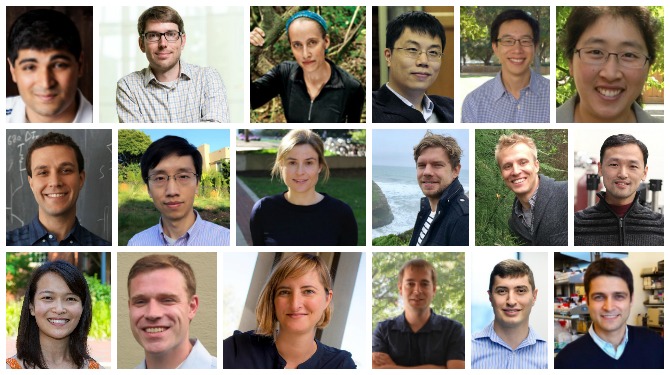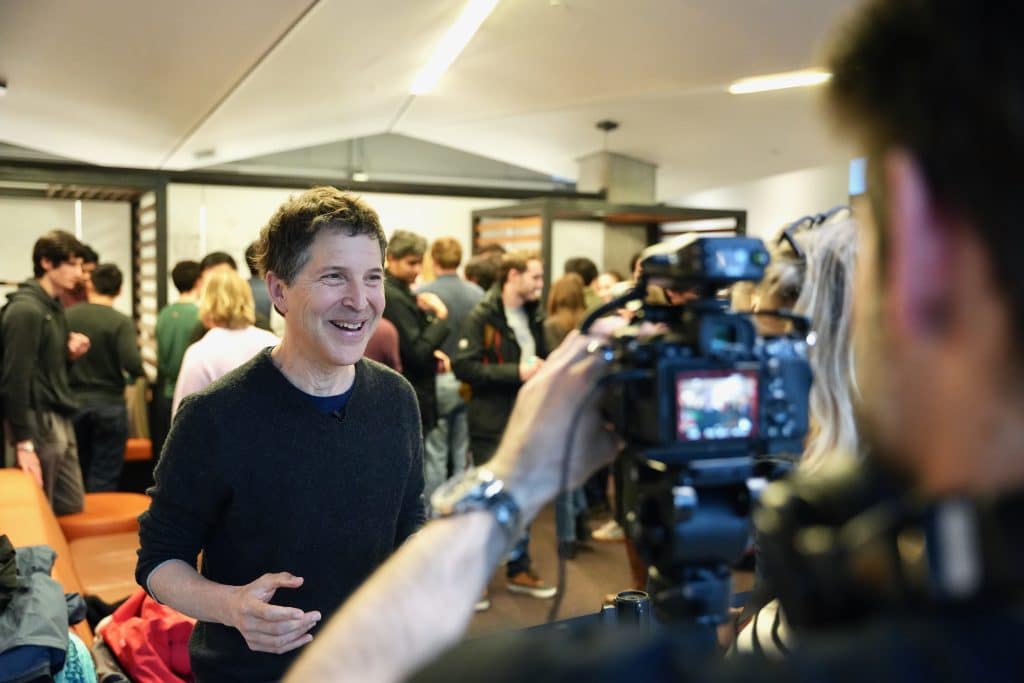Today, the David and Lucile Packard Foundation named 18 of the nation’s most innovative early-career scientists and engineers as recipients of the 2016 Packard Fellowships for Science and Engineering. Each Fellow will receive a grant of $875,000 over five years to pursue their research.
“David Packard loved science and engineering – and scientists and engineers. He believed deeply in their importance to our future as a nation and a world,” said Dr. Frances Arnold, Dickinson Professor of Chemical Engineering, Bioengineering and Biochemistry and Director of the Donna and Benjamin M. Rosen Bioengineering Center at the California Institute of Technology (Caltech), and Chair of the Packard Fellowships Advisory Panel. “The Packard Foundation is honored to have an ongoing opportunity to support these researchers in a meaningful way.”
The Packard Foundation established the Fellowships program in 1988 to provide early-career scientists with flexible funding and the freedom to take risks and explore new frontiers in their fields. Each year, the Foundation invites 50 universities to nominate two faculty members for consideration. The Packard Fellowships Advisory Panel, a group of 12 internationally-recognized scientists and engineers, evaluates the nominations and recommends Fellows for approval by the Packard Foundation Board of Trustees.
The Fellowships program was inspired by David Packard’s commitment to strengthen university-based science and engineering programs in the United States, recognizing that the success of the Hewlett-Packard Company, which he cofounded, was derived in large measure from research and development in university laboratories.
“Year after year, we continue to be inspired by the Packard Fellows’ creativity, leadership in their fields and important breakthroughs in various fields of science and engineering,” said Arnold. “The revolutionary work of these talented researchers has the ability to profoundly impact the lives of their students and all of us in the world at large.”
Packard Fellows must be faculty members who are eligible to serve as principal investigators on research in the natural and physical sciences or engineering, and must be within the first three years of their faculty careers. Disciplines that are considered include physics, chemistry, mathematics, biology, astronomy, computer science, earth science, ocean science and all branches of engineering.
Since 1988, the Foundation has awarded $378 million to support 559 scientists and engineers from 52 top national universities. The Packard Fellowships are among the nation’s largest nongovernmental fellowships, designed to allow maximum flexibility in how the funding is used. Packard Fellows have gone on to achieve significant accomplishments, receiving additional awards and honors that include the Nobel Prize in Physics, the Fields Medal, the Alan T. Waterman Award, MacArthur Fellowships and elections to the National Academies of Science, Engineering, and Medicine.
Information on the recipients of the 2016 Packard Fellowships in Science and Engineering can be found at: bit.ly/2016FellowsDirectory








